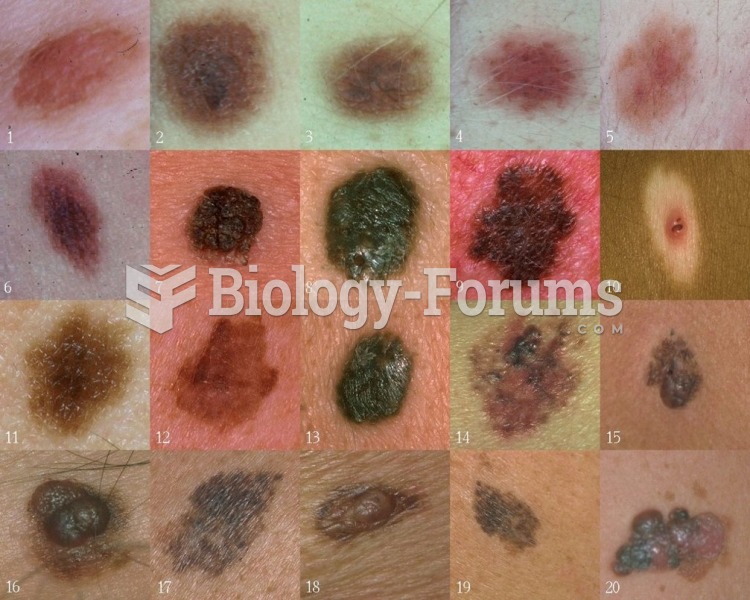|
|
|
A good example of polar molecules can be understood when trying to make a cake. If water and oil are required, they will not mix together. If you put them into a measuring cup, the oil will rise to the top while the water remains on the bottom.
The average human gut is home to perhaps 500 to 1,000 different species of bacteria.
When blood is exposed to air, it clots. Heparin allows the blood to come in direct contact with air without clotting.
There are more bacteria in your mouth than there are people in the world.
All patients with hyperparathyroidism will develop osteoporosis. The parathyroid glands maintain blood calcium within the normal range. All patients with this disease will continue to lose calcium from their bones every day, and there is no way to prevent the development of osteoporosis as a result.







